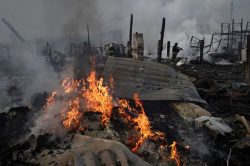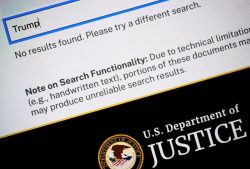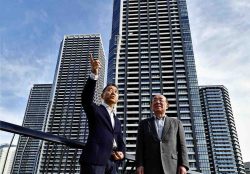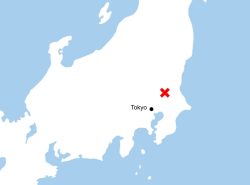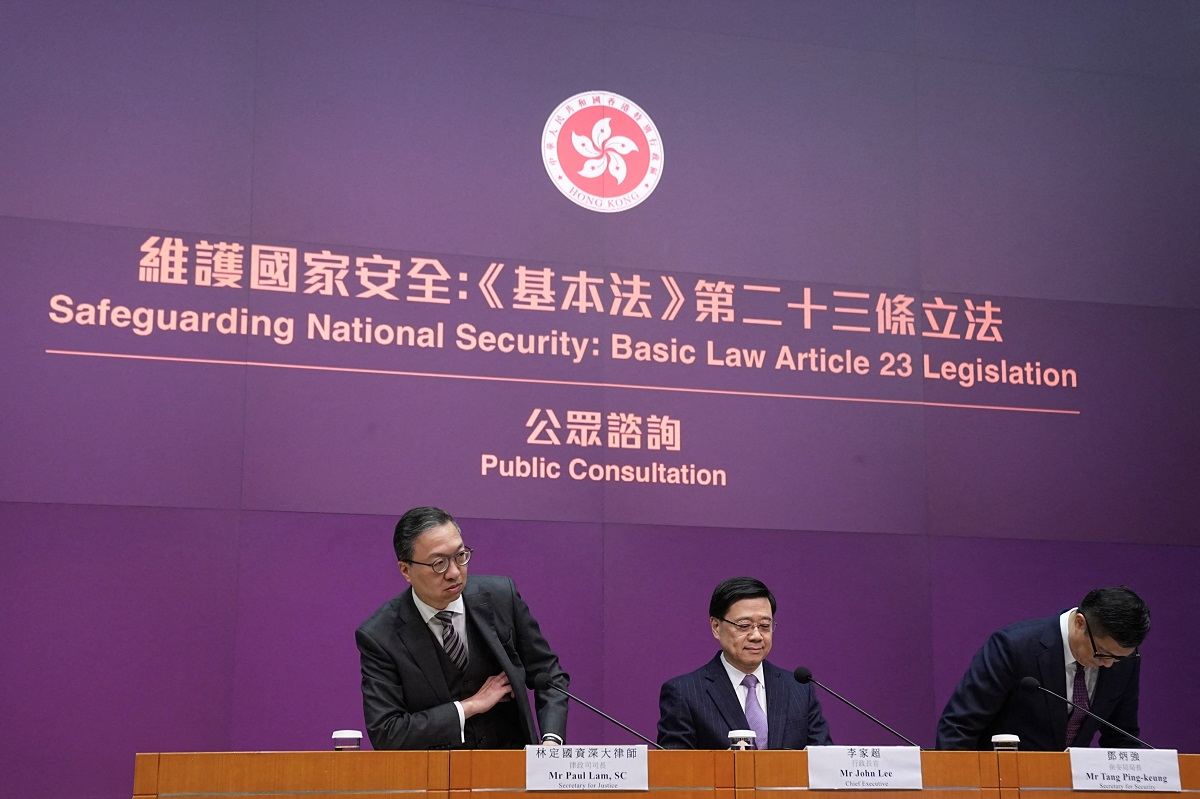
Hong Kong’s Secretary for Justice Paul Lam, Chief Executive John Lee and Secretary for Security Chris Tang Ping-keung attend a press conference regarding the legislation of Article 23 national security laws, in Hong Kong, China January 30, 2024.
12:18 JST, January 31, 2024
HONG KONG (Reuters) – Hong Kong’s leader confirmed on Tuesday his intention to tighten national security laws to build on sweeping legislation China imposed in 2020, saying the city “could not afford to wait.”
Some business people, diplomats and academics are watching developments closely, saying the prospect of new laws targeting espionage, state secrets and foreign influence, known as Article 23, could have a deep impact on the global financial hub.
Critics have denounced the 2020 legislation as a clampdown on dissent in the former British colony. The Chinese and Hong Kong governments say it was needed to restore stability after sometimes violent pro-democracy protests that swept the territory a year earlier.
Chief Executive John Lee said the government will attempt to pass the laws “as soon as possible” but did not give a precise timetable for them to be approved by the city’s legislature.
“Why now? We can’t wait. I’ve said it very clearly. We can’t afford to wait. It’s for 26 years we’ve been waiting. We shouldn’t wait any longer,” Lee said, describing it as the city’s constitutional responsibility dating back to its 1997 handover to China from British rule.
“While we, society as a whole, look calm and look very safe, we still have to watch out for potential sabotage, undercurrents that try to create troubles,” he said, saying some foreign agents could still be active in Hong Kong.
Lee said the city’s freedoms would be safeguarded and the laws would meet international standards.
A 110-page consultation document was sent to the Legislative Council on Tuesday and the consultation will end on Feb. 28.
The document outlines the need for new and updated laws covering the theft of state secrets, espionage, treason, sedition and sabotage, including the use of computers and electronic systems to conduct actions endangering national security.
Tighter control of foreign and Taiwanese political organizations linked to the city is also advocated under proposals for a new offense of “external interference.”
“External forces” had been using the city “as a bridgehead for anti-China activities…and propagating anti-China ideology through a soft approach to demonize” the Chinese and Hong Kong governments. It noted “monitoring of human rights” as one of the “guises.”
The consultation document warns that Hong Kong is under increasing threat from foreign espionage and intelligence operations, and cites the 2019protests.
China and Hong Kong are “unavoidably subject to acts and activities endangering national security conducted by the agents or spies of external forces (including external political organizations or intelligence agencies)” in the city, it notes.
It defines a list of state secrets in Hong Kong, including economic, scientific and diplomatic information, but says that for something to be classed as a state secret it would have to endanger national security if released.
SHARPER LAWS
While Chinese and Hong Kong government officials said the 2020 law was vital to restoring stability, the new package has long been required under Hong Kong’s mini-constitution, known as the Basic Law.
That document guides the city’s relationship with its Chinese sovereign after 1997, and Article 23 stipulates that the city “shall enact laws on its own to prohibit acts and activities that endanger national security.”
Some legal scholars say the new, local legislation could sharpen the at times vaguely worded 2020 law, and older colonial-era laws considered unworkable.
“It almost certainly will set red lines where the existing laws are vague, particularly in defining state secrets and espionage,” said Simon Young, a professor at the University of Hong Kong’s law school.
For example, the colonial-era espionage law refers to an “enemy” – a term the document describes as too restrictive, preferring to expand the law to cover peacetime “external forces” as well, including foreign governments, organizations and individuals.
It also calls for consideration of ending early paroles when offenses involve national security.
Lee said repeatedly that he believed the new laws would create a more stable and safe city and ultimately serve the interests of individuals, businesses and private organizations.
“Our legislation, of course, is subject to scrutiny by both Hong Kong people….and international people,” he said.
“We are confident, we are proud, and we stand high because the principles we adopt conform with the international standard.”
The document cites similar laws in Britain, the United States, Australia, Canada, New Zealand and Singapore.
A previous government attempt to pass Article 23 was shelved after an estimated 500,000 people staged a peaceful protest in 2003, forcing the resignation of the then security minister.
But the staging of such protests is now a thing of the past, a traditional venting of opinion curbed by the enforcement and provisions of the 2020 legislation.
"News Services" POPULAR ARTICLE
-

American Playwright Jeremy O. Harris Arrested in Japan on Alleged Drug Smuggling
-

Japan’s Nikkei Stock Average as JGB Yields, Yen Rise on Rate-Hike Bets
-

Japan’s Nikkei Stock Average Licks Wounds after Selloff Sparked by BOJ Hike Bets (UPDATE 1)
-

Japanese Bond Yields Zoom, Stocks Slide as Rate Hike Looms
-

Japan’s Nikkei Stock Average Buoyed by Stable Yen; SoftBank’s Slide Caps Gains (UPDATE 1)
JN ACCESS RANKING
-

Keidanren Chairman Yoshinobu Tsutsui Visits Kashiwazaki-Kariwa Nuclear Power Plant; Inspects New Emergency Safety System
-

Imports of Rare Earths from China Facing Delays, May Be Caused by Deterioration of Japan-China Relations
-

University of Tokyo Professor Discusses Japanese Economic Security in Interview Ahead of Forum
-

Japan Pulls out of Vietnam Nuclear Project, Complicating Hanoi’s Power Plans
-

Govt Aims to Expand NISA Program Lineup, Abolish Age Restriction



